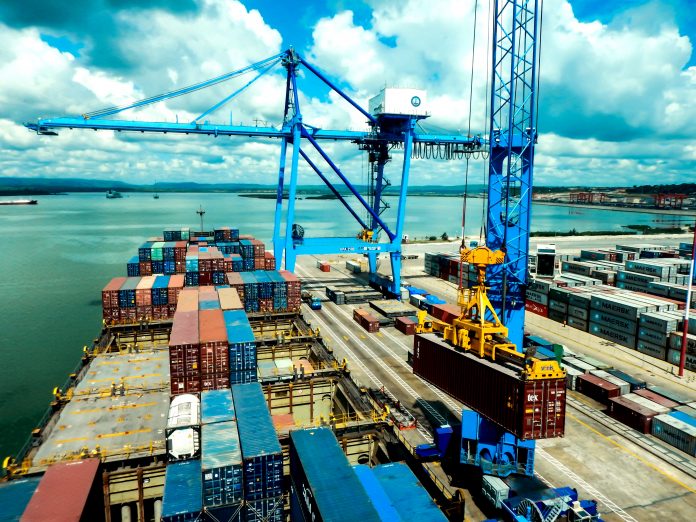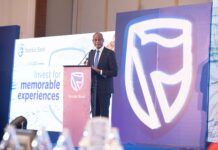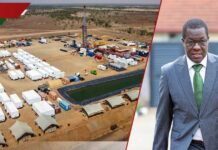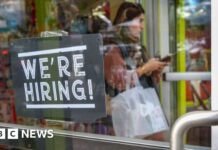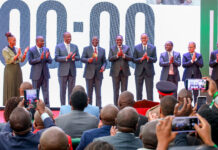Port workers have rejected the government’s proposal to hand over operations at Mombasa, Lamu, and Kisumu to a Dubai-based terminal operator.
They supported the privatization of special economic zones in the three counties, led by the Dock Workers Union (DWU), but only after extensive public participation with key stakeholders.
If the agreement is implemented, Dubai Port World (DP World), a leading provider of integrated logistics solutions, will be granted concessions to operate at least four berths at the Mombasa port, three completed berths at Lamu Port, and three special economic zones.
A document dated March 30 and signed by National Treasury Cabinet Secretary Ukur Yatani, who attended the talks in Nairobi and Abu Dhabi, confirms Kenya’s nomination of DP World to develop and operate various port components in Mombasa, Lamu, and Kisumu.
Mr Yatani stated last week that the government’s move is aimed at improving the economic operations of the Lamu Port South Sudan Ethiopia Transport (Lapsset) Corridor as well as converting the ports into a regional hub, dismissing the Kenya Kwanza alliance’s claims that the government was “auctioning” strategic national assets.
The plan to privatize key services at the Port of Mombasa has sparked outrage, with Deputy President William Ruto’s Kenya Kwanza alliance calling for the plan to be scrapped.
DWU weighed in on the situation yesterday, threatening to take Yatani to court if he does not disclose the arrangements with DP World within seven days.
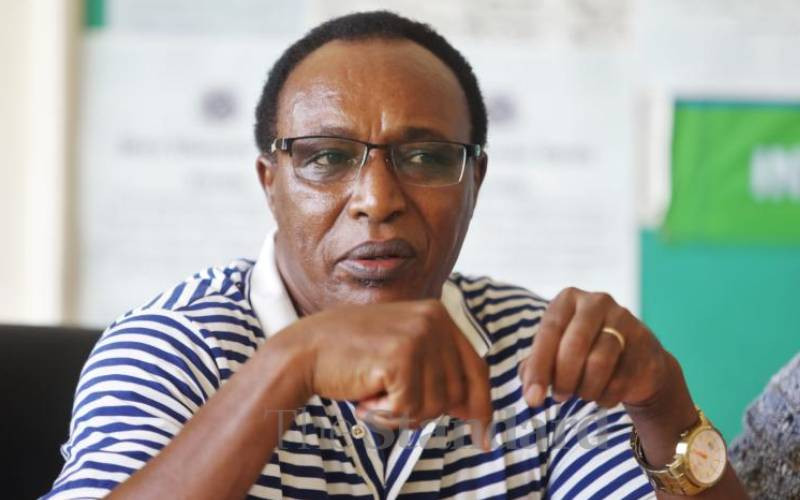
The DWU’s Secretary General, Simon Sang, stated that they want to know how far the Treasury went to make the deal.
“Is it about a special economic zone or port? But our stand is we are not happy with DP World taking over the port operations. We are giving the National Treasury seven days to respond to us failure to which we shall meet in court,” said Sang.
He said Dubai operators are not good employers.
“DP World all over the world is not always known for being a good employer in terms of taking care of workers’ interests,” said Sang.
He said they will not allow DP World to be part of the port arrangements unless there is a special arrangement involving the union members.
“We don’t want DP World to have a say because we have seen how they treat workers in other countries,” said Sang.
He stated that the government’s partnership with DP World for the sake of special economic zones should be determined by a structured task force.
Sang claims that if the government believes that DP World will be useful in developing special economic zones, it should open it up to public participation and appoint a task force of Kenyans with expertise in such investments to investigate it.
Following the signing of the concession agreement with Kenya, DP World will develop, operate, manage, and expand transport logistics services in Kenya on various components.
Politicians, according to Sang, should stop using port issues to campaign and politicize issues and instead write to the Cabinet Secretary to request that the DP World matter be postponed until after the August 9 general election.
He stated that 30% of the port is in the Inland Container Depot (ICD) in Nairobi, Naivasha, and Kisumu, with plans to decongest the Port of Mombasa in the 1980s by transferring delivery points for cargo that belongs outside Mombasa.
He noted that plans are in place to build the fifth ICD in Malaba, which will bring the services currently handled at the ICD in Naivasha closer to the owners.
“The arrangement is meant to decongest the Port of Mombasa. However, it should be understood that 100 per cent of ship operation and related revenue and employment belongs to Mombasa,” said Sang.
He added that the revival of Kenya National Shipping Line (KNSL) is urgent and long overdue in order to obtain the Sh40 billion share of the freight business.









